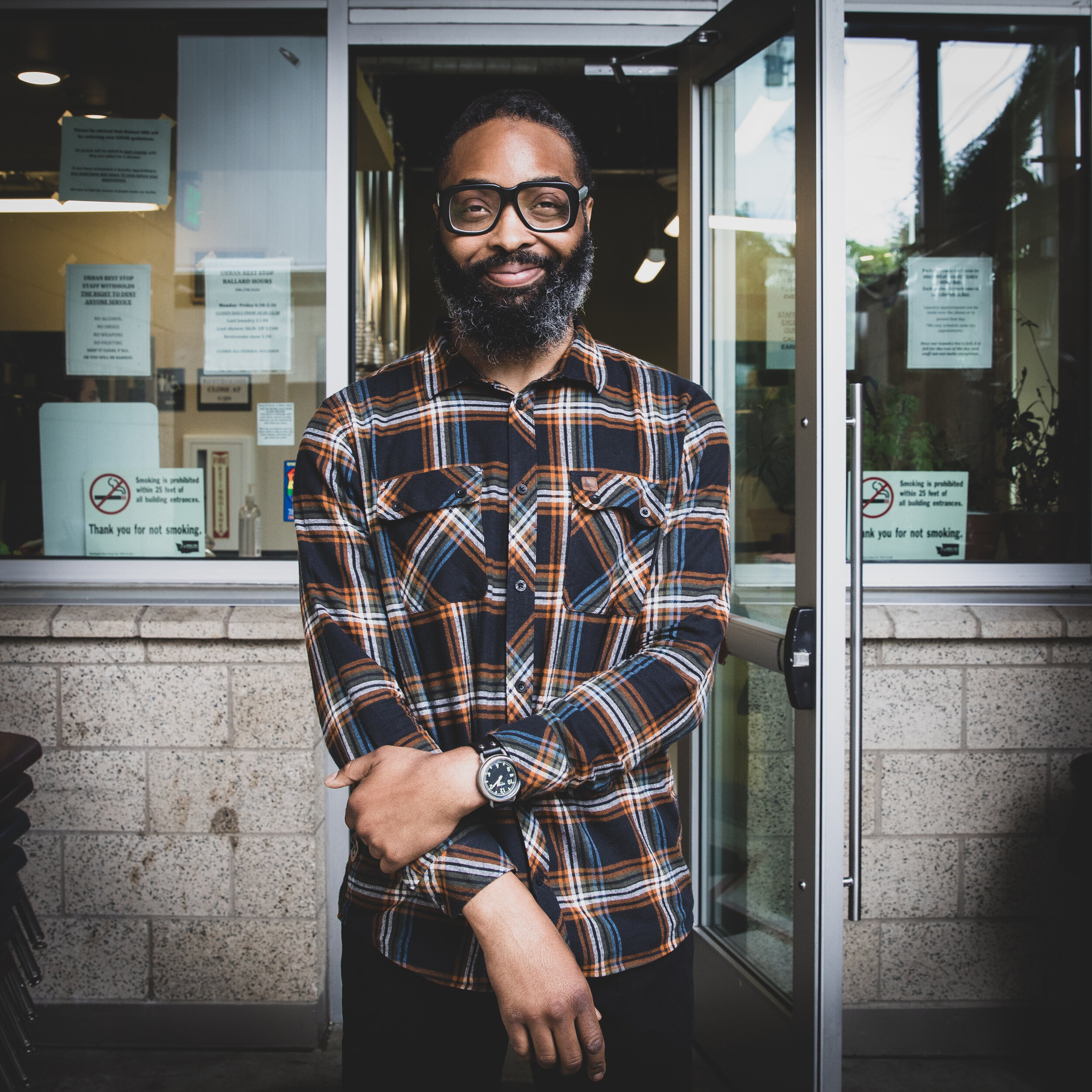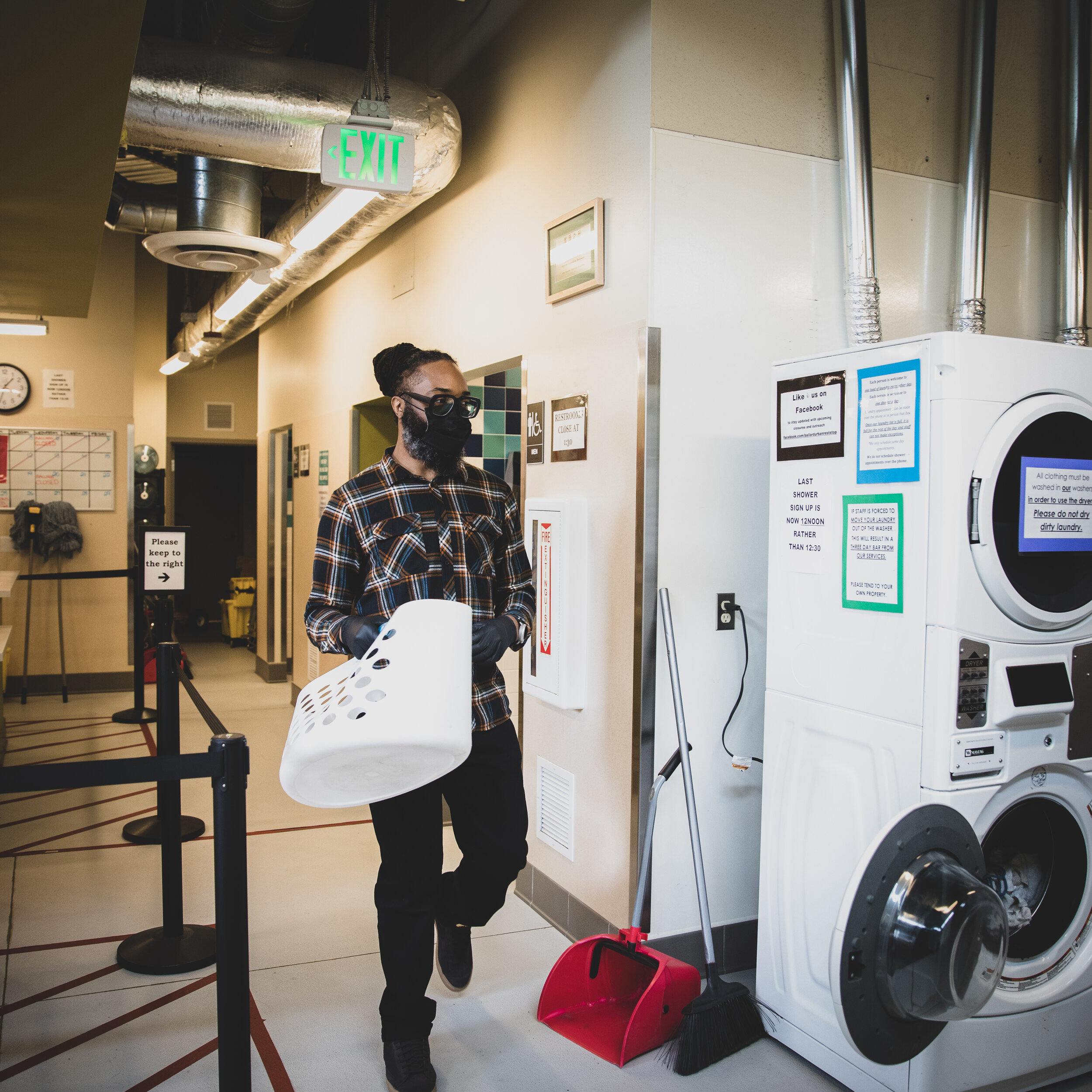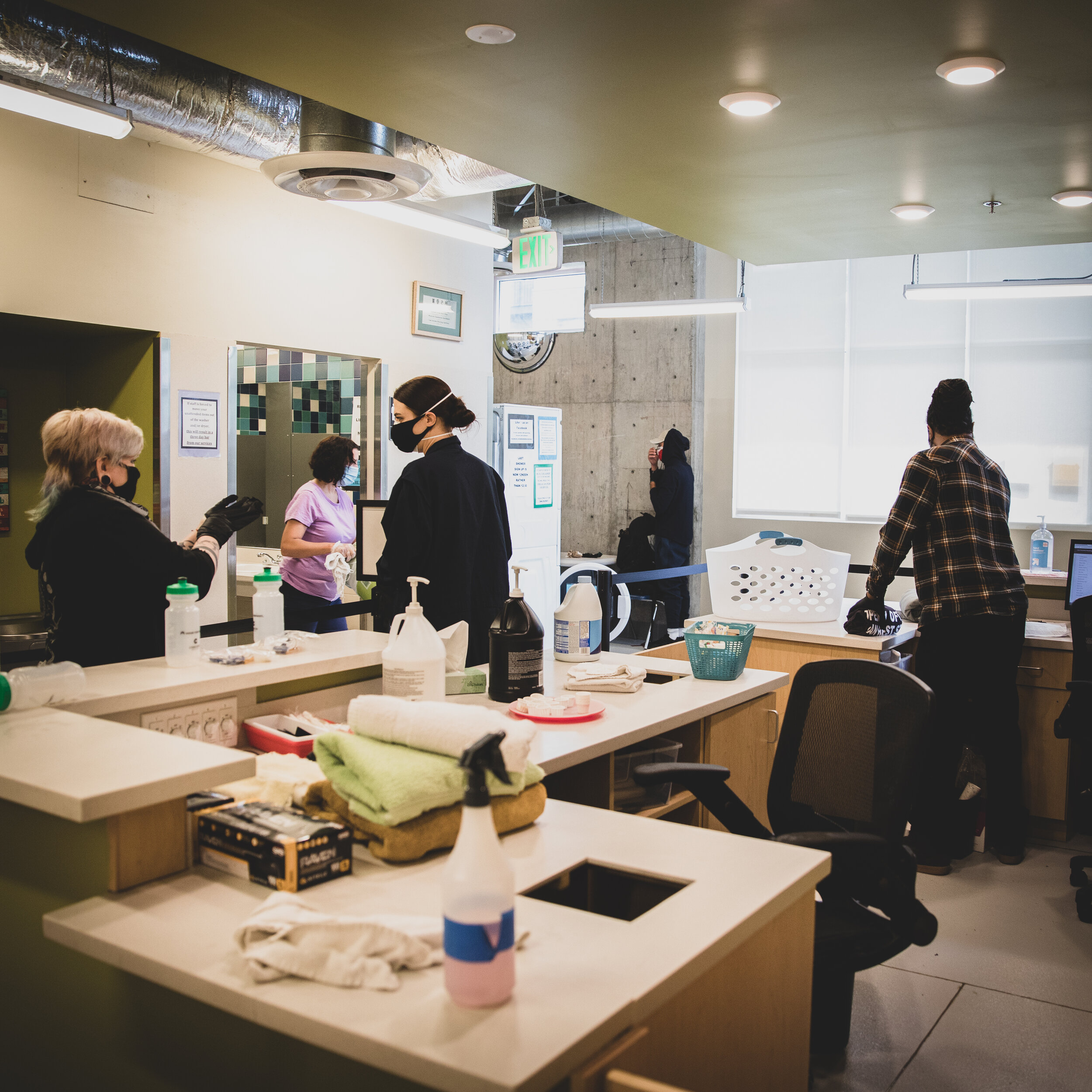Low Income Housing Institute - Jeff Glispie
Jeff Glispie - Low Income Housing Institute & Urban Rest Stop
Jeff Glispie - Interview Transcript
This is the Urban Rest Stop. This is the third of its kind. We have several locations. We've got the Downtown location, the U-District location, and this is the Ballard location. The Urban Rest Stop is a program made up from the Low Income Housing Institute. LIHI also does the tiny houses. They have numerous properties all over Washington State and the whole mission with LIHI is to get people indoors, get 'em off the street, help people with a better lifestyle, keeping up their hygiene. So many different things that they're doing for this city, and I'm glad to be a part of the Urban Rest Stop, which is a project that I strongly believe in and I will continue to support it.
We have a restroom that you can come in and use, urinals, toilets, sinks. We have wide array of hygiene needs such as shaving cream, toothbrushes, toothpaste, razors even, socks, shampoo, conditioner, all the basic hygiene needs that we conveniently have on a regular basis that some people don't.
There is more and more people with the need, it's like people that haven't been to a food bank before, they're starting to experience that. People that are running out of money, they're starting to get a glimpse of all this. I think it's real interesting that like this thing has happened and it's kinda opening up people's eyes and people are coming to some realizations. It's like, man, I wasn't too far from this, and it's like the use of a bathroom, something so basic like that, I don't know if people take the time to think about it, but it's such a, just a necessary thing for everybody, and not everybody has that. Not everybody has the access.
There was so many uncertainties about what to do with this and what does it all mean, what kind of adjustments we made. So day after day we just started figuring things out, and now it's more like just a few people in a bathroom, come on out, next people go on. We're just kinda directing people more in, and like before, we had chairs all out against the wall all over the place. Now just a few people in here at a time. So we're making those adjustments, exercising the six feet rule. Stanchions, some things that you see at a movie theater. I mean like you see staff's wearing masks, taping the floor, X’s all over the places, chairs spread out, but we're still adjusting, and we're still open and we're still trying to provide the service.
We want to serve as many people as possible, but the reality is we're not open 24 hours a day, so we just need more services like this to help and support our people living out on the street. You can help out the Rest Stop by donating. You can donate socks, you can donate wash cloths, you can donate anything like hygiene need related, things like shampoo, conditioner, soaps, laundry detergent, even toothbrushes, toothpaste, anything that you use every day, basic hygiene needs, those are all a go that you can donate to the Rest Stop. During this time, this is just an essential service, and we've made adjustments, and we're just doing the best we can and it's, here we are. So we're out here everybody, with your contribution.







